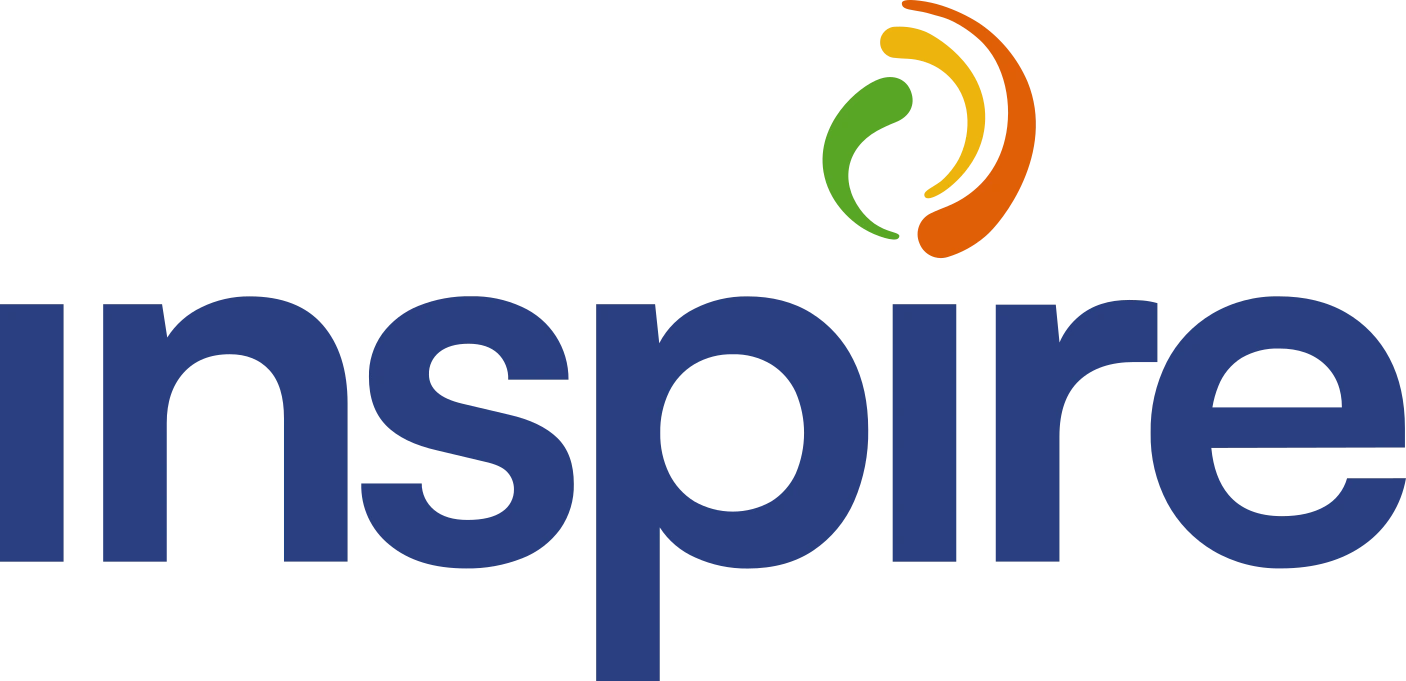The cross-PATC³H-IN Youth Advisory Board (YAB) is a central component of INSPIRE’s effort to center youth voices in the activities of PATC³H-IN. YAB members help shape PATC³H-IN’s vision by fostering youth leadership in implementation science research to enhance youth engagement and improve HIV care continuum outcomes. Our YAB consists of 16 individuals who represent the eight clinical research centers that make up the PATC³H network. Each of them brings their own professional, cultural and personal experiences to their work as a YAB member to offer insights on how to improve HIV outcomes among adolescents and young adults across Africa.
INSPIRE YAB members have been nominated by a primary investigator at the PATC³H-IN clinical research center (CRC) they represent. Members serve for a term of twelve months and may be renewed based on their interest and performance. In addition to being a member of a CRC youth advisory board, members must be between the ages of 14–35 years old, have experience with youth engagement in a PATC³H-IN country, and demonstrate enthusiasm for expanding youth engagement. If you are interested in learning more about getting involved with our YAB, contact info@inspireyouthhealth.org.
We asked three key members of our Youth Advisory Board to reflect on their experiences serving as members over their past year. YAB Co-chair Neale Nomujuni Natukwatsa (Uganda) expressed the importance of incorporating youth voices from the start, Co-chair Aishat Adedoyin Koledowo (Nigeria) brought attention to the challenges of stigma and access, and Digital Lead Stella Chinyonga (Zambia) reflected on the success of the virtual town hall organized by YAB members. Read more below on the insights they gained as youth advocates and what they would advise researchers.
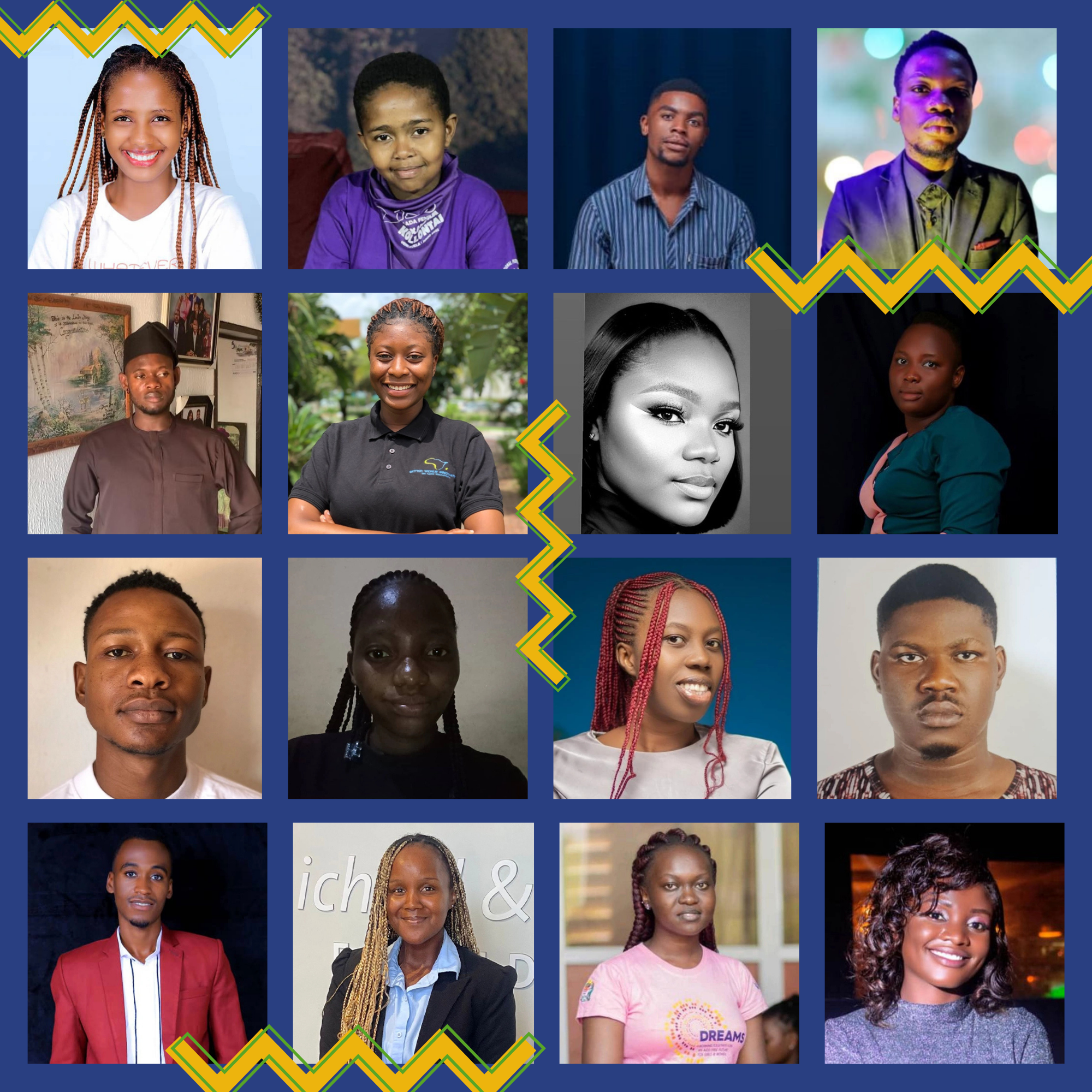
What surprised you the most about your involvement in HIV research?
Aishat: I was surprised by the level of stigma and misconceptions surrounding HIV, even more so among educated individuals. My involvement in HIV research has shown me that there is still much work to be done in terms of health education, awareness, and advocacy. I’m heartened by the progress made, but I’m also motivated to continue working towards a more informed and supportive environment for people living with HIV.
Neale Nomujuni Natukwatsa: What surprised me the most about my involvement in HIV research was how consistent and cross-cutting the issues affecting youth are across different settings. Whether it’s HIV acquisition, prevention, care, or treatment, the challenges young people face range from behavioral, biomedical, and social domains. These include stigma, lifestyle factors, limited access to youth-friendly health services, mental health struggles, drug use, and socio-economic vulnerability.
What is more unique is the power of peer-led models in addressing these challenges. When youth are actively involved not just as beneficiaries but as leaders and decision makers the outcomes are more relevant, relatable, and sustainable. I’ve seen firsthand how giving youth a platform to voice their realities and shape solutions leads to stronger engagement and more effective responses.
Stella: For the past year and a half, I’ve served as a youth community advisory board member at the Centre for Infectious Disease Research in Zambia. While I’ve always been aware of HIV’s existence, I was truly shocked to learn that there are still high numbers of deaths related to HIV/AIDS in Africa. This information really grabbed me and highlighted how much work still needs to be done on the ground level to reduce AIDS mortality rates across the continent. It’s a powerful reminder that despite all the progress we’ve made, the fight is far from over, and community-level education and support are more critical than ever.
Did this experience influence your career or academic interests in any way?
Neale: This experience significantly influenced both my career and academic interests. Being involved in HIV research, especially in youth centered and peer-led approaches, opened my eyes to the deep connection between public health, community engagement, and social justice. I came to realize that meaningful impact doesn’t come from top down solutions, but from amplifying the voices of those most affected particularly young people. This has further sparked my strong interest in social sciences and public health, particularly mental health and ethics in youth affected by HIV.
Beyond academics, this experience added to my passion for youth advocacy, promoting youth leadership and health. This has also motivated me to start a career as an early career researcher where I see myself utilizing research practices that include lived experiences and local knowledge.
Stella: Learning about the high death rates from HIV/AIDS has profoundly influenced my career path. As a public health nurse, it made me realize I needed to do more to help reduce these rates. This realization deepened my commitment to my daily work as a Community Advisory Board member, and I’ve found a new sense of purpose in contributing to the fight against HIV.
I’m now fortunate to be working with INSPIRE’s YAB as Digital Lead, a fantastic opportunity where I create content to raise awareness and promote HIV treatment. This experience has solidified my passion, and I plan to further my academic studies in public health to continue making a meaningful impact.
What challenges have you faced with advocating for adolescents and young adults?
Aishat: One of the biggest challenges I’ve faced is navigating the complex needs and perspectives of adolescents and young adults. It’s essential to make a balance between being supportive and empowering while also acknowledging the unique challenges and barriers this demographic faces. Additionally, issues related to accessibility, affordability, and acceptability of HIV services, which can be particularly challenging for young people.
Neale: One of the biggest challenges I’ve faced in advocating for adolescents and young adults is the deeply rooted judgment they encounter when seeking care. Too often, health service providers interpret their needs or behaviors through a moral lens, labeling them instead of listening. This judgment especially in areas like sexual and reproductive health or HIV services creates fear and discourages many young people from seeking the support they need.
Another major challenge is the way services are structured. In many settings, adolescents and young adults are expected to access care through the same systems designed for older adults. This lack of youth-friendly spaces makes young people feel uncomfortable, especially when receiving sensitive services alongside individuals they view as parents or authority figures. It not only compromises their privacy but also affects their willingness to return for continued care.
What YAB accomplishment are you most proud of this year?
Stella: One of my proudest accomplishments this year as a leader on the Youth Advisory Board was being involved in the successful development of the manuscript—Youth strengths to sustain HIV services in Africa— and organizing a powerful town hall meeting. It was challenging, but seeing our efforts come to fruition was incredibly rewarding.
I’m also very proud of being part of the communications masterclass (organized by the INSPIRE Learning Core). This experience has significantly contributed to my career development and skill set, which I’m now applying to my work. It’s truly fulfilling to see how our collective efforts are making a real impact.
What do you wish researchers or organizations better understood about involving youth?
Aishat: I wish researchers and organizations better understood the importance of genuinely involving youth in decision-making processes (co-creation), rather than just including them in a tokenistic way. Youth bring unique perspectives and experiences that can inform the development of effective solutions. It’s essential to create spaces where youth feel valued, heard, and empowered to contribute meaningfully. This includes providing opportunities for capacity-building, mentorship, and leadership development.
Neale: Researchers and organizations need to better understand and respect the individual differences among the youth. Every young person brings unique experiences shaped by their culture, family background, and socio-economic status. There is no one-size-fits-all approach to youth engagement. Creating space for each voice to be heard without judgment opens the door for trust and follow-up dialogue that goes beyond involvement.
It’s also important to meaningfully involve youth from the start, not just at the end. Too often, young people are only consulted once decisions are already made. But adolescents and young adults carry powerful lived experiences and often have creative, practical ideas for making research and programs more relevant and impactful. They understand what works in their communities and what doesn’t because they live it every day.
When youth are invited to co-create the agenda, not just review it, they feel valued and invested. Their voices help shape more inclusive, realistic, and sustainable solutions. Respect, trust, and early involvement aren’t just good practice, they are essential for research and programming that truly reflect the realities and aspirations of young people.
Stella: I wish researchers and organizations better understood the immense value and unique contributions of youth. Young people are a central element for change, thanks to their energy and capabilities. They are a powerful driving force for research projects, especially those that address issues directly affecting them.
Adolescents and young adults possess the unique ability to communicate and influence their peers effectively, which makes them crucial for gathering accurate data and insights. Involving youth isn’t just about ticking a box; it’s about harnessing their firsthand knowledge and innovative perspectives to create more impactful and relevant research.
What piece of advice would you give future YAB members?
Aishat: My advice to future YAB members would be to be bold, be vocal, and be persistent. Don’t be afraid to share your ideas and perspectives, even if they challenge the status quo. Remember that your experiences and insights are valuable, and you have a unique perspective to bring to the table. Also, be open to learning, growing, and collaborating with others. Together, we can create meaningful change and improve the lives of young people affected by HIV.
Working closely with the Youth Advisory Board has been both inspiring and rewarding. These young leaders have shown that when young people are engaged as co-creators rather than just participants, they bring fresh perspectives, creativity, and insight that help shape HIV research and programs in meaningful ways.
Meet the YAB
Click on a name to learn more.
Aishat Adedoyin Koledowo | Co-Chair
 S-I TEST, Nigeria
S-I TEST, NigeriaAishat Koledowo is a public health professional with a deep commitment to youth empowerment and health equity. Her journey began as a youth advocate, where she led an impactful initiatives to promote HIV self-testing, awareness and healthy behaviors among young people. That early experience shaped her strong dedication to ensuring that every young person has access to knowledge and resources to make informed health decisions.
Over the years, Aishat has built extensive experience in research, community mobilization, stakeholder engagement, and health promotion. She has worked with diverse groups and organizations, always promoting collaboration to achieve shared goals. Her work is rooted in a strong belief in inclusive decision-making and the power of youth-focused health initiatives.
Aishat currently serves as a Research Officer at Lagos State Health Management Agency (LASHMA), where she drives evidence-based interventions to strengthen health systems. She also plays a key role as a Youth Ambassador for 4 Youth By Youth (S-ITEST), leading HIV self-testing campaigns to empower youth.
Her involvement with INSPIRE began as Co-Chair of the Youth Advisory Board, where she remains an active voice in promoting global health advocacy. Aishat continues to be a driving force for positive change, always seeking new ways to uplift and empower young people.
Outside of work, Aishat enjoys mentoring youth and exploring innovative health strategies.
Neale Nomujuni Natukwatsa | Co-chair

Nomujuni Neale Natukwatsa is a dedicated healthcare provider, youth advocate, counselor, teacher, and early-career researcher with a deep passion for adolescent health, HIV prevention, and mental health wellness. He serves as Head of YAB with IDRC/MUJHU and as Co-Chair of the INSPIRE Youth Advisory Board, where he champions meaningful youth engagement in health policy and programming. Nomujuni works closely with Uganda’s Ministry of Health as an Associate under the Young Adolescent Peer Support program, shaping national strategies that prioritize the voices and needs of young people.
With multidisciplinary expertise, Nomujuni brings a grounded understanding of the real-life challenges adolescents face in navigating healthcare. His work includes co-creating community-based solutions such as peer navigation, advising on youth-centered study design, facilitating consultations and public dialogues, co-developing tailored interventions, and strengthening referral pathways. Through research, advocacy, and collaboration, he is committed to building inclusive, ethical, and responsive systems—proving that youth are not just participants, but powerful leaders of change.
Stella Chinyonga | Digital Lead
 ZAIMARA, Zambia
ZAIMARA, ZambiaStella Chinyonga is a devoted public health nurse with passion in health advocacy. She has made significant strides in promoting health and wellness in underserved communities. With experience as a volunteer nurse and programs manager at Tabene youth Advocacy Network, Stella developed and implemented impactful HIV/AIDS prevention programs. She currently serves as a Digital Lead for the INSPIRE Youth Advisory Board, leading the Youth Advocates for Change initiatives to amplify youth voices in implementation science. Her work has been recognized by the Center for Infectious Disease Research in Zambia (CIDRZ) for outstanding efforts in HIV/AIDS advocacy and was appointed as one of the youth community advisory board representative. Stella’s passion lies in improving health outcomes and empowering communities, particularly in HIV/AIDS prevention and management. She is committed to making a lasting impact and collaborating with like-minded individuals to create positive change.
Beene Chitempa
ZAIMARA, Zambia
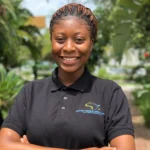
Beene Chitempa is a nurse by profession with a passion for empowering young people to make informed health decisions. With experience in teaching, facilitation, community engagement, and data management, she has worked with diverse groups to drive positive change. Her journey began as a peer educator, creating safe spaces for youth to discuss sexual and reproductive health.
Beene has served as a Training Coordinator on the Southern Africa Accelerated Innovation Delivery Initiative (AID-I), promoting climate resilience among young women and youth in rural communities. As a CIDRZ Executive Committee Member and INSPIRE YAB member, she advocates for youth voices in all stages of project implementation. Throughout her career, she has championed women and youth focused initiatives, emphasizing inclusive decision making and amplifying marginalized voices.
Asanele Ndevu
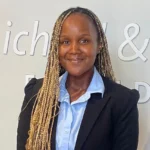 ATTUNE, South Africa
ATTUNE, South Africa
Godswill Nwoha Chisom
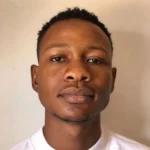 S-I TEST, Nigeria
S-I TEST, Nigeria
Godswill Nwoha Chisom is a passionate healthcare professional and youth advocate with over four years of experience in community outreach, program coordination, and peer education. Currently pursuing a degree in Guidance and Counselling at the University of Abuja, he has served as a counselor, HTS focal person, and peer educator at Kuje General Hospital. He is the Assistant Program Coordinator at Beyond Development for Africa Youth Advancement Initiative, S-I Test Ambassador for the 4YBY project, and CEO of Zoommax Cleaning and Delivery Services. Godswill has led several successful outreaches with AHF, championed youth-friendly initiatives, and has a strong track record in monitoring and reporting. His dedication, leadership, and communication skills make him a valuable asset to any cause or organization.
Raine Alamanya Renatus
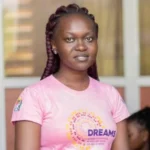 MWOTAJI, Tanzania
MWOTAJI, Tanzania
Esther Mangadzuwa
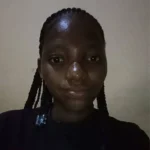 VS4A, Malawi
VS4A, Malawi
Rukia Hassan
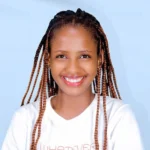 MWOTAJI, Tanzania
MWOTAJI, Tanzania
Nicolas Shima Aernan
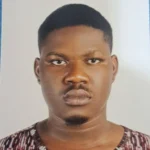
RISE, Nigeria
Pimer Clare
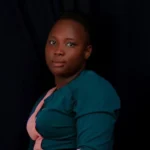 MUJHU, Uganda
MUJHU, Uganda
Pimer Clare is a student doing secretarial and office management work. Pimer is interested in creating youth awareness of HIV/AIDS. In addition to serving as a youth advisory board member for INSPIRE, Pimer serves as a peer and community advisory board member at Kagadi hospital under HIV prevention department
Desderata Mlachila
 VS4A, Malawi
VS4A, Malawi
Desderata Mlachila is a well-disciplined, focused and self motivated with good interpersonal and communication skills. An innovative and creative person who quickly learns new skills and embraces changes, she has a passion for serving others on leading roles. A major achievement in her life was managing to advise children who had high viral loads that are now suppressed. Desderata loves my work and it is her wish to reach out the needy and those who fail to take drugs so that they can adhere and achieve viral suppression.
Chinedu Mbah
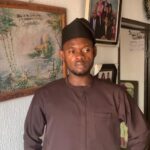 iCARE Plus, Nigeria
iCARE Plus, Nigeria
Hezekiah Samuel
 iCARE Plus, Nigeria
iCARE Plus, Nigeria
Philip Chinseu
 RISE, Nigeria
RISE, Nigeria
Thandekile "Tiny" Thusini
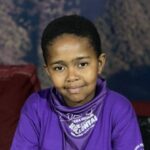 ATTUNE, South Africa
ATTUNE, South Africa
Thandekile “Tiny” Thusini is a leader, facilitator, public speaker, and human rights activist from KwaZulu Natal, Pietermaritzburg, in South Africa. She is a conversationalist passionate about youth empowerment and community development. She serves as a director of UMBONO NPO; a chairperson for Home of Hope Youth Foundation, a 2025 SunshineCinema Spark impact facilitator; Youth Advisory Board member in AHISA(SA) For Youth Adolescent Research in HIV; and a youth reporter at Sinomlando Centre and former radio presenter at UMgungundlovu FM local radio station.
